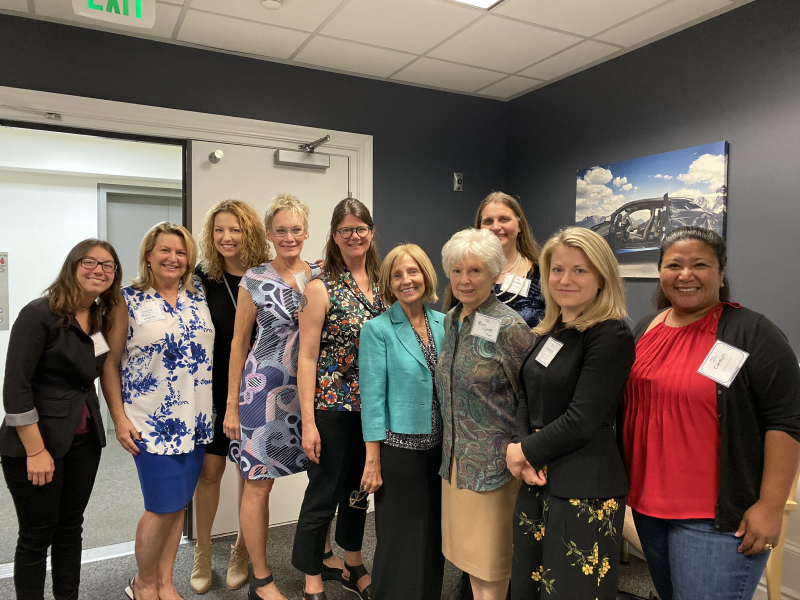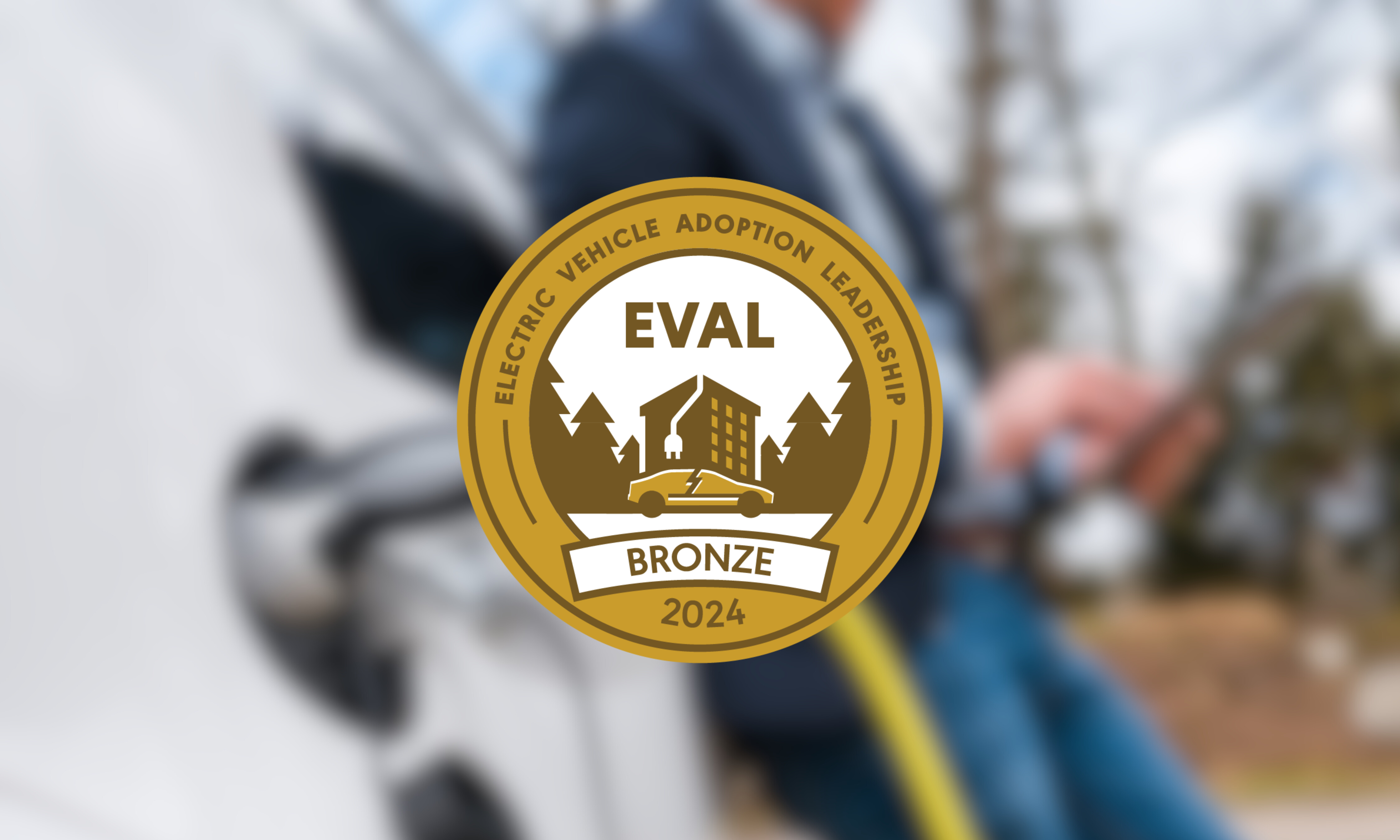As we approach International Women’s Day on March 8th (mark those calendars!), we would like to recognize the huge influence women have had in the adoption of electric vehicles (EVs) in the United States. From the activists who led the fight to save EVs in the early 2000s to the leaders of the EV movement today, there are nearly 1.5 million EVs on the road because of the efforts of these impactful women.
In the late 1990s and early 2000s, many women were among those who were first in line to drive first-generation EVs like the EV1, Ford TH!NK, and Toyota RAV4 EV.
“In an effort to cut down on our fossil-fuel use, I investigated the GM EV1,” said Gabrielle Adelman, an early adopter. “[My husband] Ken was very, very reluctant to come on the test drive, but I dragged him along. Fortunately, my determination was pretty strong. Shortly after taking delivery, however, Ken was sold on it and we ended up having to lease another as we were fighting over who got to drive it!”
“The EVs that existed were hard to find because automakers didn’t advertise them,” said Sherry Boschert, another early adopter. “We finally leased our first EV in 2002—a Ford TH!NK City two-seater hatchback with an effective range of around 35 miles. We fell in love with electric drive. There was no turning back.”
However, many of these initial cars were leased and automakers soon started taking these vehicles away from consumers when those leases ended. A group of dedicated activists, including Adelman, Boschert, Chelsea Sexton, Alexandra Paul, Linda Nicholes, Jennifer Krill, Heather Bernikoff-Raboy, Lisa Rosen, and many others, fought to save EVs from going to the crusher, as documented in the film Who Killed the Electric Car?. In their efforts, they were successful in saving at least 1,000 Ford and Toyota EVs from the crusher.
“I was part of a coalition of anti-war and climate change activists, including Global Exchange and Rainforest Action Network,” said Jennifer Krill, who is now the board president of Plug In America. “Our theory of change was that zero-emission and fuel-efficient cars could end our dependence on oil, and protect human rights and the environment from pollution and climate change, and our target was Ford Motor Company. We joined forces with activists driving the first generation of zero-emission cars. Together, we generated a media circus and successfully saved many of the cars in that fleet.”
Krill added, “EVs represented a pathway out of our oil addiction, and the refusal by automakers and policymakers to embrace them showed denial about the impacts of that addiction.”

Sherry Boschert
During this time, Boschert wrote Plug-in Hybrids: The Cars That Will Recharge America to educate consumers how they can reduce their carbon emissions by shifting to a plug-in hybrid.
Many of these activists joined together to form Plug In America, which became a 501(c)(3) nonprofit organization in 2008.
Since that time, women have continued to be leaders in the EV field.
Transport Evolved is a YouTube channel dedicated to greener transportation. Nikki Gordon-Bloomfleid, Kate Walton-Elliott, and Erin Carlie provide their subscribers insight into the different aspects of cleaner transportation, from Tesla to e-bikes. Collectively, their team has been driving EVs for 20 years.
“There have been talented women in EV world for decades, especially in the engineering side, and they have not been recognized,” said Gordon-Bloomfield. “There is a mistaken belief that women only work in the sales and advocacy side. However, they are behind the scenes in engineering.”
Gordon-Bloomfield pointed to Pamela Fletcher, currently the vice president of innovation at General Motors, as one example. She oversaw the development of the breakthrough Chevrolet Bolt EV.

Women of EVs Summit in Portland, Oregon in June 2019. Photo credit: Annie Helen Photography
A group called Women of EVs (WEVs) has the mission of “elEVating” women who are working in the EV industry. Among other activities, they host an annual summit where women can gather and network. Last year’s summit was attended by over 150 women who are all working to further EV adoption. The group is led by Tonia Buell of the Washington State Department of Transportation, Shae Davies of Clark County Public Works, Amy Hillman of Blink Charging, Ashley Horvat of Greenlots, Andrea Pratt of the City of Seattle, and Angela Song of the Puget Sound Clean Air Agency.
“What I love about WEVs is the diversity of participants,” said Buell. “We represent a variety of organizations including automakers, charging providers, utilities, and government. We have a variety of jobs from engineers to executives. We come from all across the US and have guests from around the world. Some of us have worked in the industry for years and others are just getting started. Most importantly, we are all there to support and empower one another.”
“A female perspective is not only valuable as the industry tries to reach more people and make EVs mainstream, but vital in bringing a diverse and comprehensive approach to moving markets and creating equitable public policy,” said Pratt. “We need more female CEOs, executive directors, entrepreneurs, elected officials, directors, general managers, and leaders to facilitate the type of transformative change to electrify the transportation system at scale and replace every internal combustion engine with an EV in the next decade!”
“Women often have so many roles: mother, wife, career woman,” said Raejean Fellows, president of the Electric Auto Association. “Sometimes we shy away from power—because it means added responsibilities. Don’t do this. We need to have powerful positions and use our talents to benefit the rapid transition to e-mobility. The planet needs us.”
“I think the EV movement is in sync with the women’s movement,” said Mary Nichols, chair of California Resource Air Board. “In many ways, women are making more car-buying choices and are generally more open to thinking about sustainability when choosing. Sustainability means safety, maintenance and repair costs, time spent in gas stations or looking for gas stations, and total cost of ownership. All these criteria favor EVs.”
“I hope more women see that you don’t need to be a car geek to enjoy the many advantages of EVs,” said Boschert. “I’d like to see women use their power to accelerate their family’s and our society’s transition to EVs running on cleaner, cheaper, domestic electricity.”
“Plug In America is fortunate to have been founded by a group that included 50% women,” said Krill. “There’s no reason why women shouldn’t be equally represented in leadership throughout the EV movement, but old habits die hard and we can’t be complacent and assume that equality will simply happen.”

